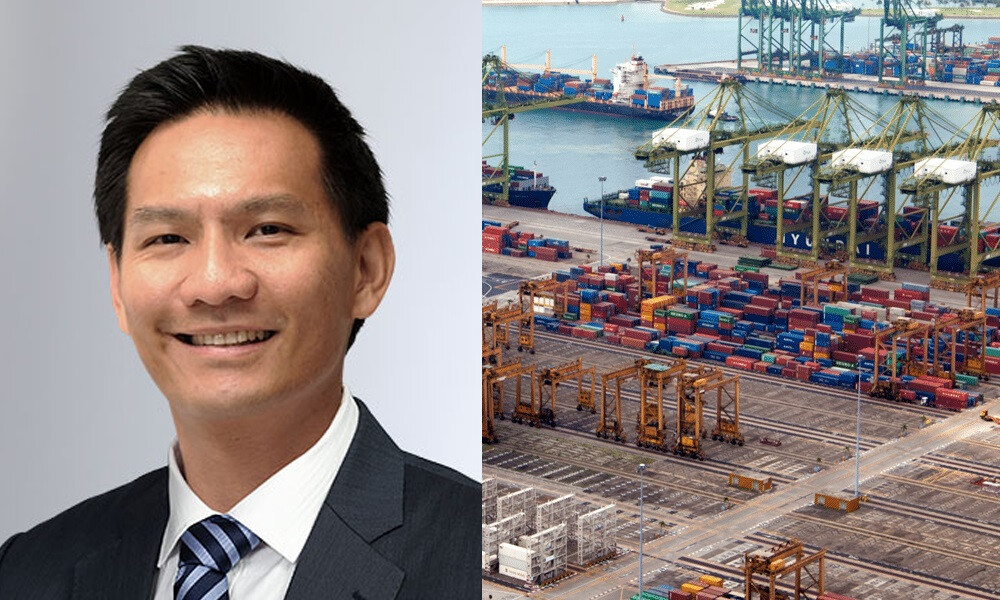
SINGAPORE - As the full imposition of tariffs by the United States is expected to significantly impact the Singaporean economy, public policy expert Professor Donald Low has urged a transformation of Singapore's economic model. He cautioned against "apocalyptic forecasts" and argued for a response to the crisis through structural reforms that reduce trade dependence.
In a Facebook post on April 6th, Professor Low described the US tariffs as a "major shock to the global trading system" and a "death knell for neoliberal globalization." However, he emphasized that Singapore's response is more critical than the severity of the shock itself.
"As with other economic shocks, how we respond matters more. And by respond, I don't mean Singaporeans pulling together," said Professor Low, who is a senior lecturer and practice professor at the Institute for Public Policy at the Hong Kong University of Science and Technology (HKUST).
His remarks followed Prime Minister Lawrence Wong's national address on April 4th, in which Wong warned that Singapore must "brace ourselves for more shocks" and that "the global peace and stability that we once knew is unlikely to return anytime soon." He also characterized the US tariffs as an "earthquake-like shift in the world order," adding that "we cannot assume that the rules that have protected small states will still hold." Wong urged Singaporeans to stay united, vigilant, and mentally prepared, emphasizing that a departure from rules-based globalization would make small economies vulnerable.
While not dismissing the seriousness of the situation, Professor Low focused on the fundamental principles of economics. He pointed out that Singapore's Gross National Income (GNI) is determined by three components: consumption, investment, and net exports.
"The Singapore economy is unusual in that net exports are an extremely high share of our GNI," he noted. He mentioned that despite a trade deficit with the United States, Singapore's overall trade surplus exceeds 30% of its GDP, which he described as "exceptionally high by global standards." In contrast, China's trade surplus is around 4-5% of its GDP.
Professor Low cautioned that "a large trade surplus isn't necessarily a good thing," arguing that Singapore should not aim to maintain excessively high external surpluses at the expense of domestic balance.
He pointed out that while the US accounts for 11% of global imports, its GDP represents 27% of the global economy, suggesting that global trade could be reconfigured through other markets if widespread protectionism does not take hold.
Professor Low proposed that Singapore should respond in two ways: "find new markets for our exports, and restructure our economy to be less dependent on exports and more driven by domestic consumption."
Singapore's total consumption (sum of household and government spending) is just over 40% of its GDP, significantly lower than the global average of around 70%. Professor Low emphasized that "boosting domestic demand will become an increasingly important hedge in an era of deglobalization."
He identified Singapore's high national savings rate (over 50% of GDP) as a major reason for low consumption. This is attributed to the government's fiscal surplus and household savings, with a significant portion of household savings allocated to housing purchases. Professor Low analyzed that "to increase domestic consumption, the government will have to run smaller fiscal surpluses, and Singaporeans will have to save less of their income for housing."
Framing the US tariffs as a potential turning point, Professor Low suggested that Singapore could respond by making its economic model more balanced. He stated, "Like the Covid shock five years ago, the Trump tariffs are survivable. Indeed, Singapore might even adapt and thrive by shifting to a more 'normal' growth model."
In a commentary with Chong Ja Ian, an associate professor of political science at the National University of Singapore, Professor Low acknowledged that US retaliatory measures could affect Singapore's position in terms of investment. "Foreign direct investment (FDI), especially from American firms, may decline," he noted, while adding, "It's not as if we lack investable funds, as our extremely high savings rate shows. So we can invest more domestically instead of investing so much abroad. We just have to be careful that this investment doesn't flow into speculative and unproductive areas like property or domestic equities."
Responding to another question about the impact of an aging society on consumption, Professor Low argued that an aging society should actually lead to more consumption. "After all, the reason for the high savings rate is the aging population. So when the aging actually happens, we should be spending some of those savings rather than continuing to accumulate even more savings."
Regarding the growing service sector in Singapore and whether the economy should further shift towards service exports, Professor Low replied, "That's a good point. I think our services exports are already as high as our goods exports."
Professor Low's remarks are notable for reframing Singapore's response towards policy-driven adjustments rather than solely resilience. While Prime Minister Wong emphasized national unity, institutional preparedness, and geopolitical prudence, Professor Low focuses on structural reforms, particularly boosting domestic demand and reorienting investment.
[Copyright (c) Global Economic Times. All Rights Reserved.]






























